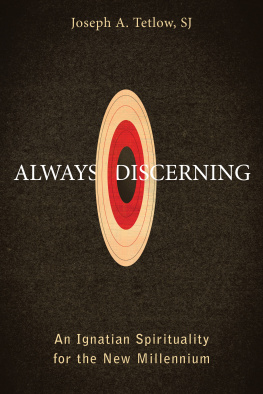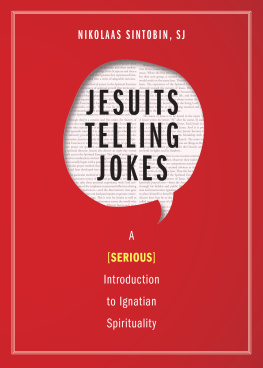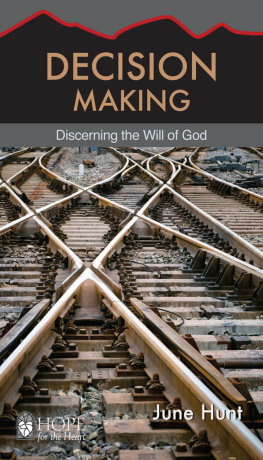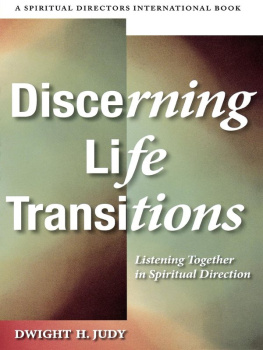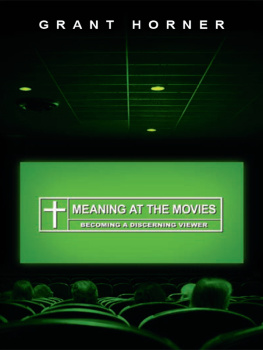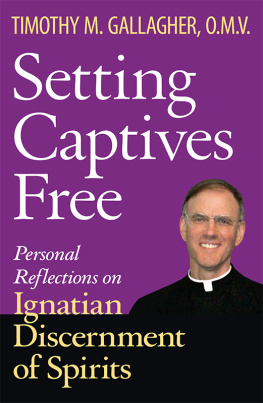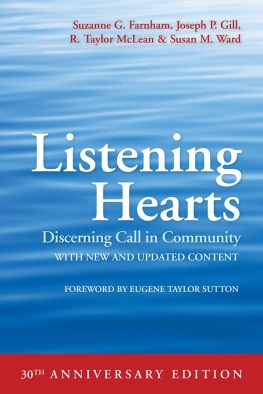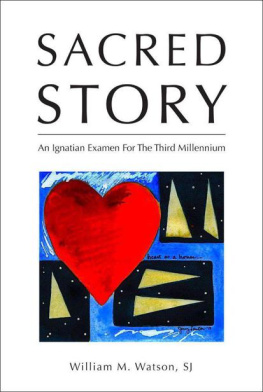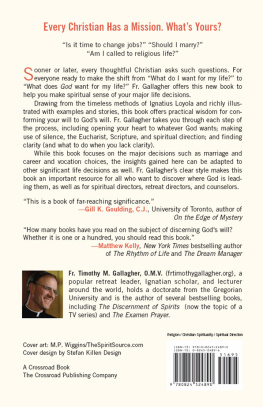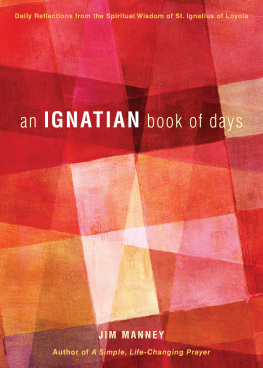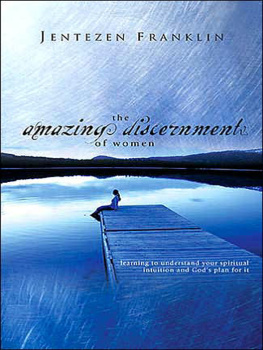
3441 N. Ashland Avenue
Chicago, Illinois 60657
(800) 621-1008
www.loyolapress.com
2016 Joseph A. Tetlow
All rights reserved.
Imprimi potest: Very Reverend Ronald A. Mercier, SJ, Provincial
Scripture citations, unless marked otherwise, are taken from the New Revised Standard Version Bible Anglicized Catholic Edition, copyright 1989, 1993, 1995 the Division of Christian Education of the National Council of the Churches of Christ in the United States of America. Used by permission. All rights reserved.
Those so marked are from The New Jerusalem Bible, copyright 1985 by Darton, Longman & Todd, Ltd. and Doubleday, a division of Bantam Doubleday Dell Publishing Group, Inc. Used with permission.
Cover art credit: iStock/Qweek, ChuckStryker/iStock
eBook ISBN: 978-0-8294-4457-5
Based on the print edition: 978-0-8294-4456-8
Library of Congress Control Number: 2016946119
16 17 18 19 20 EPUB 5 4 3 2 1
A great number of people have contributed to these pages. Naming all of them would take too long, but here are the places they gathered: Jesuit Hall of St. Louis University, men who were real brothers to me at various periods over thirty years. The Institute of Jesuit Sources, particularly Frs. John Padberg and Claude Pavur. There, too, the Garfield Group of Frs. Chris Pinn, Albert Rotola, and Jack Hunthausen, who put up with much while the book was getting launched. BRIDGES, the program of Exercises in Daily Life in St. Louis, particularly Joan Felling and Mary Mondello. The Cheerful Charlies, Jesuits who make our annual eight-day retreat in various wildernesses, especially John Stacer, Thomas Rochford, and Gary Menard. The Ignatian Prayer Pilgrimage Groups, held together in Dallas by Berta Montes and including Paul and Sally Pederson and Mike and Liz Bassett. The Ignatian Spirituality Institute of Dallas, Texas, created by Carol Ackels. And finally, Kavanaughs Theologians in St. Louis, who let me listen to their discussions, masterminded by Joseph Lipic, Sr., my Friday Breakfast Companion.
I should add that every time I tell about an experience, or recount a story, I could tell about another or others like it. Some individuals are named in the narrative. Elizabeth Moulin is a therapist and spiritual director with whom I taught spirituality to ecumenical groups at Perkins School of Theology at Southern Methodist University. Eileen Rafaniello Barbella is also a therapist and spiritual director; we have worked together for thirty years. Joyceann Hagan goes unmentioned but gave us all a lot of help. So also Mary Allen Jolley, the best cousin in the world.
I am particularly grateful to the editors of Loyola Press, particularly Joseph Durepos, Vinita Wright, and Susan Taylor.
The book is done to honor the Lady Mary, Undoer of Knots, who has undone plenty as my life and this book unfolded, and to keep alive the memory of Donald L. Gelpi, SJ, philosopher and theologian, my incomparable friend.
Discernment has become a constant in the lives of mature Christians. A lawyer in Connecticut says he often has to discern the morality of a legal action. The mother of grown children, who prays daily with Scripture, found herself living all day with a sense of Gods Spirit with her; she told me that she was discerning what that meant. A young woman in Dallas asked me to pray with her as she discerned whether to go to a Catholic college. A couple in Seattle have been discerning whether to sell their home. As I write this at Grand Coteau, nine younger men, Jesuit novices, are discerning through the thirty-day Spiritual Exercises whether their vocation to the Jesuits is authentic. A lot of people I know discern steadily what God hopes in them.
Discernment is a gift offered to everyone who believes in Jesus Christ. Those growing into a spiritual life hear St. Paul: Do not be conformed to this world, but be transformed by the renewing of your minds, so that you may discern what is the will of Godwhat is good and acceptable and perfect (Rom. 12:2).
Pope Francis has certainly heard this. He is showing the world how a discerning mind and heart light up everything a follower of Jesus Christ does. He acts constantly in discerning ways, trusting instincts that have been honed over years by prayer and struggle (including failure). He not only does it, he talks about it. His conversations, as they are reported by those close to him, begin with listening. He has listened to the People of Godthe little people, the educated people, the leaders civil and religiousand he has heard us reaching for discernment and finding this renewed spirituality for the twenty-first century.
In his exhortation The Joy of the Gospel, the pope talked about discernment twenty times. In a candid interview with a Jesuit editor, much briefer than the Exhortation, he used the word fifteen timesand explained what he meant by it. He summarized his thought on it this way: Discernment is essential. We can trust his actions and his teaching, which will show up a lot in the following pages.
Mature Christians, however, were growing more aware of this life-shaping charism well before Pope Francis was elected Bishop of Rome. We were applying it to moral choices, life decisions, and even the simple judgments of everyday matters. It is given us by the Spirit of truth, whom the unbelieving world around us simply does not know. But Jesus said to his followers: You know him, because he abides with you, and he will be in you (John 14:17).
We are still working to clarify all the things meant by discernment, however. During most of the past century, we thought of it principally as a way to discover Gods will, particularly about being a religious or a priest. We tended to think that the people facing those decisions were the ones who needed to do this discernment thing. And for decades at the end of the past century, those who did it focused strongly on a specialized discernment of spiritswhich was the only entry on it in the original Catholic Encyclopedia. Anyhow, it was mainly experts who were interested in it.
Then the Churchnow seen as the People of Godwas guided by the Second Vatican Council (1962 to 1965) to read the signs of the times. That has led to broadening considerably what we mean by discernment. It has also led to expecting all mature followers of Jesus Christ to get into it. Fifty years after the Council, not only scholars and nuns and priests, but also all mature disciples are discerning. And we are giving the term clear and rather subtle meaning, as the many voices in these pages will show.
The pages will also show that I am aware of this historical development, but I am not recounting that history. I am interested here in what mature disciples mean when we say that we are discerning. The layers of that meaning begin in our being aware and appreciating that God is not our Creator a long time ago but is continually creating us, moment by moment. We have to explore this first great discernment, in which we learn to appreciate our busy, intimate Maker. The next layer grows as we learn more about Scripture and early Church teaching. We learn that Jesus Christ is the Redeemer not only of the Church but also of all humankind. When we probe this second great discernment, we need prayer to help us open our mature hearts to him as my Redeemer.
In this intimate dialogue with God, we have grown aware of the Holy Spirit, and we have begun appreciating that the Spirit is shaping us. This appreciative awareness opens us to consider how to discern the Spirits work. Particularly through consolation and desolation, the Holy Spirit teaches this truth: From a youth, I have molded you according to my liking. Not

